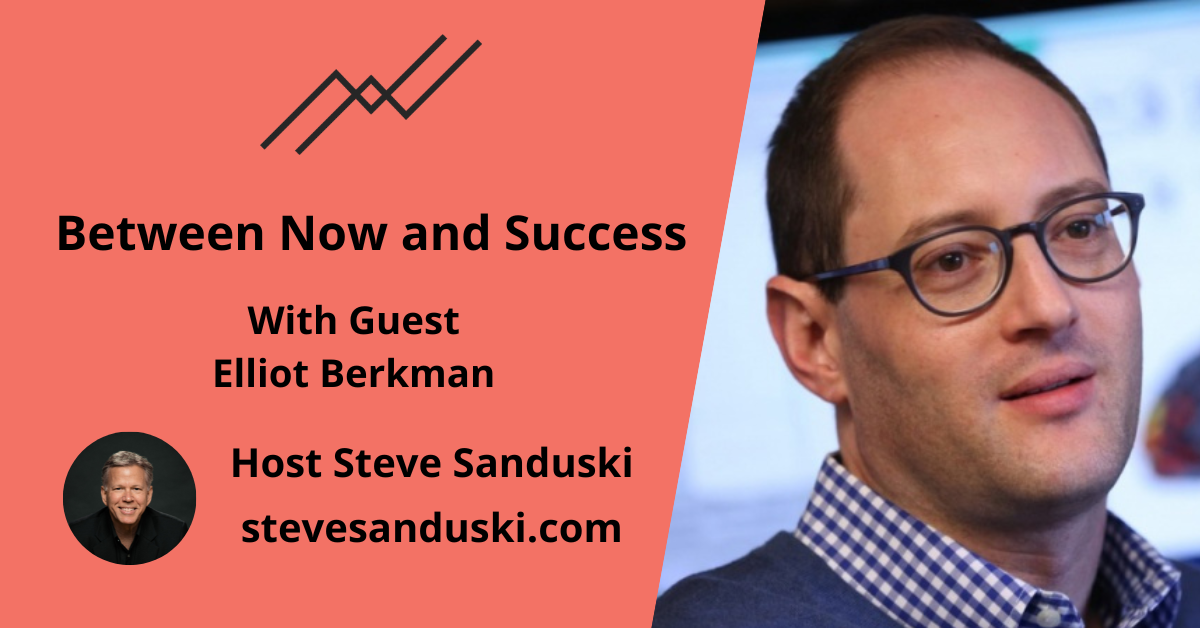“What are my clients thinking?”
I know I’m not the only advisor who’s asked myself that question over the years in both positive and negative situations. But answering this question has never been more critical to our industry. Technology is advancing rapidly and driving down the value of investment management. Many advisors are using technology to increase efficiency in managing money, reducing the perceived value of what advisors have historically been paid for.
One way for advisors to reassert their value, and justify their fees to prospects enamored with cheaper robo platforms, is by using questioning to uncover a person’s values and motivations. With this info, advisors can put a plan together that not only meets the client’s financial needs, but their emotional ones too.
My guest today, Dr. Elliot Berkman, is a tenured Associate Professor of Psychology at the University of Oregon, where he directs the Social and Effective Neuroscience Laboratory and conducts field-leading, federally-funded research on goals, motivation, and behavior change. He’s also the Associate Director of the Center for Translational Neuroscience, and an author who writes about psychology and neuroscience for lay audiences, including in Psychology Today. We talk about the concept of the will and the way of goal pursuing, where the way is the set of cognitive skills, capacities, and ability that we collectively call the executive function, and the will is the motivational factors that propel the behavior. We also talk about how to increase our motivation and influence other people’s behavior, the idea of flow states, and how that applies to achieving goals.
5 Insights on Influencing Behavior from Elliot Berkman
1. Your clients’ values are a part of them.
“When you think about utility, when you’re processing whether to invest in option A versus option B or considering gains versus losses, you see activity in this region called the ventromedial prefrontal cortex. For a long time, people in our field have thought about this region as the value region. It turns out that that exact same region is also involved when you think about yourself.
To us, that’s kind of interesting because it’s saying, maybe value is more related to this idea of subjective value. It’s about self. It’s value to me. When you’re thinking about your own traits, you’re evaluating yourself in the same way that you might evaluate purchasing options and biasing those options in a predictable, human way.”
2. Changing behavior is not a cognitive challenge.
“One of the default assumptions that we have when someone is struggling with goals or someone that’s struggling with productivity, is that it’s a cognitive thing. Meaning, it’s something about their ability or their capacity to focus their attention or use verbal reasoning or intelligence or something like that, classic cognitive processes. Solutions that people have come up with are like cognitive training. ‘You can’t keep whole things in mind for too long, so we’ll train that.’ But cognitive training doesn’t really work. You’ll get better on a working memory task but you won’t be better in working memory in general.”
3. Changing behavior requires increasing motivation.
“Often, in my work, I look at dieting or smoking cessation. If you think about the mental facilities that it takes to be able to do those things, it’s pretty simple. When you’re trying to quit smoking, you know what to do. You just don’t smoke. Where people struggle is that motivational side. It’s wanting to do it enough that it really has value, that it’s important enough to you that you are willing to exert the effort that it takes to overcome those temptations or to go out of your way to change your behavior in a way that you know that you’re supposed to. I’m not going to try to make you smarter or faster or better, what I’m going to try to do is to get you to want this more. That’s sort of a very different approach to changing behavior than has been tried previously.”
4. Walk your your clients up and down the goal hierarchy to influence their behavior.
“Any given behavior, you can understand the motives behind the behavior by going up in the hierarchy, by asking the question Why. ‘I’m going to lose 10 pounds by the end of February.’ That goal doesn’t exist in isolation. I would say, ‘Okay, why? Why do you want that?’ We’ll start at the goal, you go up one level of the hierarchy.
Well, maybe it’s because I want to be healthier. Let’s go one level up. ‘Why do you want to be healthier?’ Maybe I want to live a long time. Okay. Maybe we can push that even further. ‘Why do you want to live a long time?’ Well, because I have children and I really want to live to see their grandchildren. At some point, you get to these big life goals. I started with my goal of losing 10 pounds and after a couple of questions, I’m talking about my grandchildren.
Asking How moves down. ‘I want to lose 10 pounds by the end of February.’ How am I going to do that? Well, I’m going to shop differently so that I buy more healthy foods. Again, you can keep asking How. How am I going to do that? Maybe I need to go to a different market. At some point, you ask How and you get to very low-level, actionable, concrete steps that you can take.
It’s interesting to put it all together. Starting to think about our goals in that big picture, I think, will help people motivate low-level behavior, which feel like a hassle, they feel annoying, they feel effortful. If you have a really good, clear understanding for yourself of why you’re doing those things, what’s the motivating factor behind them, it becomes a lot easier.”
5. Where there’s a Will there’s a Way.
“Depending on what you’re trying to change, it can be hard for different reasons. I try to classify those reasons into the Will and the Way. The question is, ‘What is it that I’m lacking here? I’m not doing it for some reason, so why and what’s the reason?’
I really want to write this paper. I’m procrastinating on it, I’m struggling to get started. It’s not because I don’t want to. So maybe I ask, ‘Why is it important to me, why might it be important to me?’ This is going to advance me professionally, advancing me professionally is really important to me because I have these personal goals. And then at some point, that becomes easier. I’ll be more motivated because I’m thinking about why I care.
That’s been a useful exercise for me personally and it’s something that we worked with our subjects to identify, too, to think about as a diagnostic tool. Saying, ‘What’s the challenge here?’ Start to be a little more precise about what the problem is. Is it a motivational thing or is it a cognitive thing? Then once you know, then there’s different solutions to those problems.”
Resources
- The University of Oregon Department of Psychology Visit Elliot and his team online.
- Psychology Today Links to some of Elliot’s recent writing.
- Shalom Schwartz Value Inventory Elliot recommends Schwartz’s work on identifying and ranking values to determine what’s important to us.
- Misbehaving by Richard H. Thaler Elliot says that Thaler took behavioral science “to the next level in thinking about how is it that people make economic decisions in ways that those decisions predictably deviate from what’s rational and what we can learn about choice and humans from that.”









